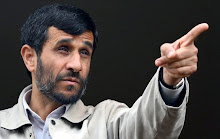Ars Poetica #100: I Believe by Elizabeth Alexander
This week, a poem by Elizabeth Alexander, who will read at Obama's inauguration. You can read more of her poems here. Do you like Obama's choice?
Ars Poetica #100: I Believe
Poetry, I tell my students,
is idiosyncratic. Poetry
is where we are ourselves,
(though Sterling Brown said
“Every ‘I’ is a dramatic ‘I’”)
digging in the clam flats
for the shell that snaps,
emptying the proverbial pocketbook.
Poetry is what you find
in the dirt in the corner,
overhear on the bus, God
in the details, the only way
to get from here to there.
Poetry (and now my voice is rising)
is not all love, love, love,
and I’m sorry the dog died.
Poetry (here I hear myself loudest)
is the human voice,
and are we not of interest to each other?
 Elizabeth Alexander was born in Harlem, New York in 1962, and is a professor at Yale. She is the author of four books of poetry. Her latest collection American Sublime was one of three finalists for the Pulitzer Prize.
Elizabeth Alexander was born in Harlem, New York in 1962, and is a professor at Yale. She is the author of four books of poetry. Her latest collection American Sublime was one of three finalists for the Pulitzer Prize.
Ars Poetica #100: I Believe
Poetry, I tell my students,
is idiosyncratic. Poetry
is where we are ourselves,
(though Sterling Brown said
“Every ‘I’ is a dramatic ‘I’”)
digging in the clam flats
for the shell that snaps,
emptying the proverbial pocketbook.
Poetry is what you find
in the dirt in the corner,
overhear on the bus, God
in the details, the only way
to get from here to there.
Poetry (and now my voice is rising)
is not all love, love, love,
and I’m sorry the dog died.
Poetry (here I hear myself loudest)
is the human voice,
and are we not of interest to each other?
 Elizabeth Alexander was born in Harlem, New York in 1962, and is a professor at Yale. She is the author of four books of poetry. Her latest collection American Sublime was one of three finalists for the Pulitzer Prize.
Elizabeth Alexander was born in Harlem, New York in 1962, and is a professor at Yale. She is the author of four books of poetry. Her latest collection American Sublime was one of three finalists for the Pulitzer Prize.


